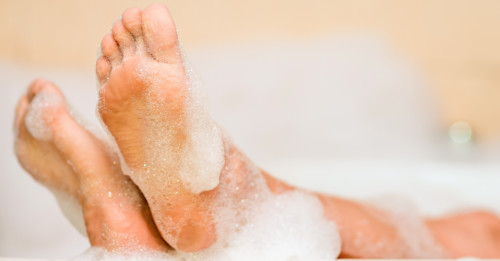By now we all know the basics of how beer is made, and what it’s made for. But beer has a few unexpected applications and benefits.
We’ve all heard of the nutrition in beer, maybe sometimes as a rationalization for drinking another. But it isn’t all wishful thinking. Historically, the earliest beers were consumed not just for a mild buzz but for the nutrition of a rich, unfiltered, grain-based brew. And while beer isn’t quite as nutritious today, there are some power-packing holdouts. Beer (especially unfiltered beer, in which yeast is still present) can be rich in vitamins B3, B6, and folic acid (not to mention iron, protein, fiber, phosphates, and calcium). But don’t go drinking your vitamins just yet: the alcohol in beer inhibits proper absorption of those B vitamins.
Good news though: that same alcohol can raise your good cholesterol (HDL). There’s also increasing evidence that the silicon content in beer may be helpful in the fight against Alzheimer’s. And it’s already shown strong evidence of helping prevent osteoporosis: hops and (pale, less roasted) barley malts contain high levels of silicon, which are not destroyed during the brewing process, and silicon is an essential factor in bone mineral density. (There’s also evidence of a link between the silicon and beer and a lower instance of kidney stones, which are made up of calcium deposits.)
Again, any health benefits tend to go in line with moderation. Once high levels of beer consumption are introduced, all bets are off.
But this is a DIY era, so what about random household uses? Because of its acidity, beer can act as a polish. Just allow it to go flat and you can use it polish brass, copper, and other household metals as well as antique wood (always test a spot first, thanks Bob Vila!). Beer’s also a good candidate for capturing flies and garden pests. Pour some beer into a small shallow container and cover it with perforated plastic wrap; flies will dive in and have a harder time buzzing out. For garden pests like slugs, just pour some beer into a container that’s been dug flush into the ground, such that slugs can slug their way in but not out. Beer can also help repair brown spots in your lawn.
Fear not, it’s not all slugs and dirt. Beer also has some beauty applications. It’s good for bathing, though more cost-effective would be to use beer as a footbath (the yeast in the beer softens skin and the alcohol is an antiseptic). But it can also make a good conditioner. Thanks to its proteins and B vitamins, you can use beer to restore some luster to your hair: just boil it to cook off the alcohol first, since that’ll actually damage your hair. And warn anyone within sniffing distance that you may smell like a brewery for a few days (which could be a good or bad thing).
